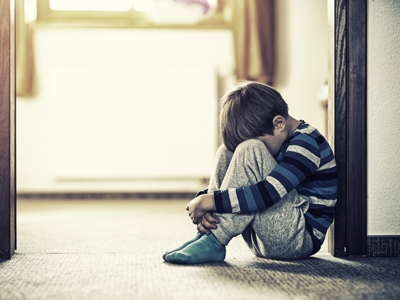
School revelations show attitudes and behaviours towards women start young
Alison Millar, who represents survivors of sexual abuse, comments on what has been a tumultuous week.
Posted on 17 March 2021
Like very many people, I have been shocked and angered by the Sarah Everard case and took part in the doorstep vigil on Saturday night.
I think what has propelled this case, among many – roughly one woman is murdered every three days in the UK - to the forefront of public consciousness has been that the man arrested on suspicion of the murder is a serving police officer. This is a potent symbol of the failure of our police and other institutions, the Courts and legal system among them, to tackle violence against women and girls. With the number of rape convictions having fallen to an all time low in England and Wales, there is enormous concern that despite the strides that women have made to come forward and call out sexual abuse, with the #MeToo Movement, the system is beset with misogynistic attitudes and assumptions as to the sorts of cases where juries will return guilty verdicts.
These sort of attitudes and behaviours towards women start young. In this regard, I read with concern the article published in The Sunday Times on 14 March entitled, “Report boys to the police for sexual abuse, top schools told”. This reported on a website called Everyone's Invited, which was started last year by recent graduate Soma Sara after she shared her own experience of rape culture and received many responses, which made her realise the need for a movement committed to exposing rape culture in schools and universities.
To date, over 4,500 testimonies of sexual violence, harassment, sexual coercion, bullying, coerced sending and sharing of ‘nudes’ and other concerning behaviours have been submitted. Some of these accounts disclose the most serious sexual offences, including oral, vaginal and anal rape. The victims are predominantly, although not exclusively, female and the perpetrators are predominantly (although again not exclusively) male. Some of the victims say there were as young as 11 or 12 years old. The accounts are anonymous but respondents are invited to submit the names of the schools/universities attended by them and by the perpetrator: these include the country’s most famous boarding schools and London day schools including Latymer Upper, St Paul’s, Highgate, Hampton and City of London School for Boys.
What often comes across in the accounts is the apparent entitlement of young men to use young women for their sexual gratification and for ‘bragging rights’ among their peers.
The young women involved feel that they have few options but to submit and, where they do speak out or their experience otherwise becomes known, can face negative reactions by peers – these included being gossiped about or judged (‘slut shamed’) by both boys and other girls, which respondents found particularly hurtful – and sometimes indifference from their schools. Many, although not all, of the experiences submitted to the website took place outside school at parties or other social gatherings but the negative consequences were felt by the victim when they returned to school.
Some accounts describe a “toxic culture” in some schools with schools even perpetuating rape myths/sexist thinking: for example, at one top London school there was said to be, “a general culture of sexual harassment and misogynistic bullying which made sexual assault acceptable. The staff and students were all complicit in allowing that environment to fester”.
At another school, in relation to which multiple accounts of sexual harassment and assault have been submitted to the site, one respondent describes having “a vivid memory of the girls being told to sit properly ie with legs crossed in class as male teachers would feel uncomfy telling us” and another said, “In year 7 my form teacher told me and a group of my friends that girls skirts should be longer because in science class he can see all the girls vaginas. He’s a teacher in his 30’s, we were 11. The same teacher would tell us off for wearing clear nail polish as it was ‘distracting’”.
Others reported the failure of their schools to equip them with proper sex and relationship education, emphasising the importance of consent and this being specific and freely given: for example, one account says, “The ‘sex education’ we received was laughable …”.
One said that after a repeated incident of sexual harassment happened during class over an extended period of time, their parents wrote to the headmaster complaining about it but the headmaster/school never responded to the letter: “I think this goes to show that this is an institutional problem”.
As I have said, these accounts are anonymous and the schools’ responses have not been collected. I would hope that the schools concerned will have put initiatives in place and would be able to respond to say that they take this very seriously. However, what is clear from the number and nature of these accounts is that sexual violence and harassment between young people, underpinned by misogynistic attitudes and entrenched by social hierarchies (respondents described how the most ‘popular’ boys were the predators and the pressure on boys to join in these behaviours to boost their status), is really pervasive and has become normalised. Respondents describe their experiences having a lasting impact, sometimes for years, on their mental health and relationships; I know from working for many abuse survivors that this is often the case.
In the circumstances, more radical actions and resources need to be put in by schools to tackle ‘rape culture’. My colleague Andrew Lord has written several blogs about this: Peer-on-peer abuse: is enough being done to address the risks in schools?, Mandatory legal requirement for teachers to report suspected abuse is needed now more than ever, Peer on peer abuse guidelines leave too much to interpretation and The tip of the iceberg - the sad reality of peer-on-peer abuse in schools. The Everyone's Invited website has a list of recommendations including the reform of sex education, a zero tolerance policy to tackling toxic behaviours and collaboration with sex ed organisations. There are some really good initiative including the Good Lad initiative run by Beyond Equality and the training programmes offered by Freedom from Abuse, with whom Leigh Day is very pleased to be collaborating this week on a joint videoconference focusing on young people’s experiences of abuse ‘Be Seen, Be Heard’. Some hard decisions will be need to be made, including disciplinary action, to make clear that misogyny, sexism, harassment and abuse are disgusting behaviours, which will not be tolerated, regardless of the identity of the perpetrator, and this must start by tackling even low level “casual sexism”.
Continuing support, including specially trained staff and peer mentors, should be made available for victims to approach.
I am a parent of a child at a London day school myself and of course as parents we need very much to be talking to our children about acceptable and unacceptable behaviours too. However, as children get older and spend more time away from their families and peer influence and peer pressure becomes of huge importance, schools have a crucial role to educate on relationships and sex education and tackle the prevalence of a rape culture that is toxic and damaging to girls and boys alike.



